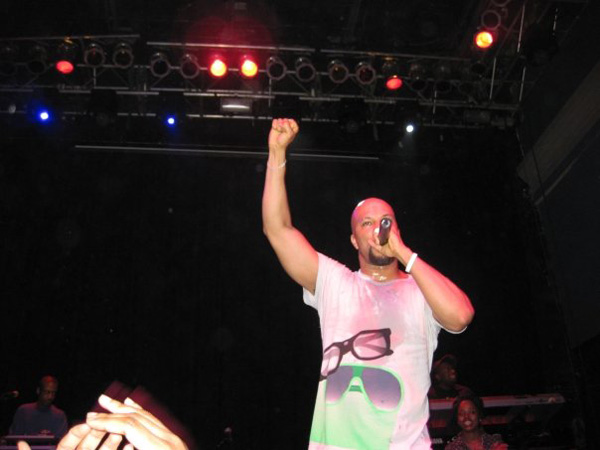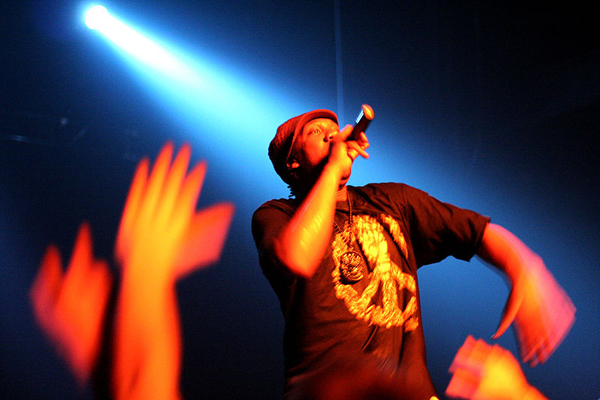SECTION 04
Hip Hop
In the 1970s a new urban-based cultural movement popularly termed hip-hop emerged. The core elements of hip hop culture include graffiti, break dancing, emceeing and deejaying, and rap music, which is based on the spoken word and its interplay with the musical beat. To many, rap’s jarring style and frequent use of profanity was difficult to understand. However for many young blacks and Latinos born after the civil rights and Black Power period, hip-hop embodied their own feelings and expressions about the nature of contemporary society. Created in the context of poverty, high unemployment, and the drug epidemic in inner cities, rap was a means through which to give voice to a generation’s critique of their own marginalization from mainstream society. Militant, edgy and radical in their lyrics, hip-hop artists used their records as a platform to address the inequities of the establishment. Such artists as Afrika Bambataa and the Zulu Nation, Grandmaster Flash and the Furious Five, who were later termed “old school rap” artists, were unscrupulously exploited by managers and music business executives. In 1982, twenty-two-year-old rapper Chuck D. (Clareton Ridenhower) formed the group Public Enemy, which signed a contract with Def Jam Records. Public Enemy’s second album, It Take A Nation of Millions to Hold Us Back , was a bold and provocative statement of revolutionary politics.
“Old school” hip hop groups in the 1980s, like Grandmaster Flash and the Furious Five and Melle Mel, rapped against police brutality, unemployment, and drugs.
Progressive artists such as Public Enemy, KRS One, a Tribe Called Quest and Mos Def spoke about AIDS /HIV awareness, called for an end to black-on-black violence, encouraged voter registration, and campaigned against budget cuts in public schools. Black female rap artists such as Sister Souljah, Salt-n-Pepa, and Queen Latifah provided powerful images of self-confidence and activism for millions of young African American women. Successful hip hop entrepreneur Russell Simmons, co-founder of Def Jam records, initiated campaigns to promote voting among black youth and to oppose the privatization of public schools and a public educational effort to debate the issue of “black reparations,” the question of whether African Americans should finally be compensated for centuries of enslavement and Jim Crow segregation.
While not all rap groups and hip hop culture have presented a positive image for youth, and while the politics of the entertainers have not always been progressive, it is important to note the ways in which rap has been a unifying force to address youth issues. On June 11-12, 2001, in midtown Manhattan’s posh Hilton Hotel, Simmons hosted the first national “Hip-Hop Summit.” The major conference attracted both national and international media attention. Virtually every major hip-hop artist over the prior two decades was present. For the first time as a group, these young hip-hop artists were engaged in direct discussions with public policy makers, including NAACP President Kweisi Mfume, Martin Luther King III, Congresswoman Cynthia McKinney, and NOI leader Louis Farrakhan, and with African-American studies scholars Cornel West, Michael Eric Dyson, Tricia Rose, and Manning Marable. The conference endorsed the establishment of a “Hip-Hop Summit Action Network,” which would involve itself in extensive voter education and registration efforts among youth aged 18 to 29 years old, and in engaging hip-hop celebrities to become more directly supportive of various social justice activities, especially in the area of criminal justice.
Related Resources
Common Sense.
Hailing from the Southside of Chicago, Common Sense has enjoyed both commercial and underground notoriety. Particularly early in his career, Common attempted to bring a political and social awareness to his music.
Source: Elizabeth Hinton.




